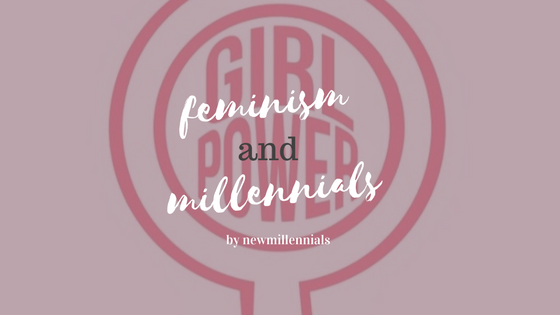A brief of the history of feminism and how millennials see feminism nowadays
Feminism is one of the most important social movements of the past two centuries and certainly the social movement which has brought about the most enduring and progressive transformation of human society on a global scale. It is customary to divide the history of feminism into a First, Second, and Third Wave, with each period signalling a different era in the struggle to attain equality between the sexes.
Today feminism means many different things to different people, but at its core, it is primarily a social movement for the emancipation of women. That movement was slow to start, and it wasn’t until the late 1880s that the term ‘feminism’ actually appeared.
Today feminism means many different things to different people, but at its core, it is primarily a social movement for the emancipation of women. That movement was slow to start, and it wasn’t until the late 1880s that the term ‘feminism’ actually appeared.
Achieving full voting rights for all women regardless of age, race, or marital status took more than a century of struggle, it was called The First Wage and ‘the longest revolution’. However, even after women obtained the right to vote in most parts of the world at the turn of the 20th century, it was still several decades before full equality was obtained. And many would say that it has not yet been obtained.
It is worth mentioning that throughout the long First Wave of feminism women fought against several other injustices as well, of which three are key. (i) Women were restricted in terms of the ownership of property, (ii) Women did not have full rights over their own body, which meant they had no legal protection against sexual violence ,(iii) Women were discriminated against in the workplace, which not only meant women were paid less than men for the same work, it also restricted them from applying for certain jobs, denied them promotion, and made no allowance for maternity leave. Many of these problems persist today.
Coming off the heels of World War II, the Second Wave of feminism focused on the workplace, sexuality, family and reproductive rights. During a time when the United States was already trying to restructure itself, it was perceived that women had met their equality goals.
Coming off the heels of World War II, the Second Wave of feminism focused on the workplace, sexuality, family and reproductive rights. During a time when the United States was already trying to restructure itself, it was perceived that women had met their equality goals.
Today, we're living the Third Wave and unlike the former movements, the term ‘feminist’ is received less critically by the female population due to the varying feminist outlooks. The main issues we face today were prefaced by the work done by the previous waves. We are still working to vanquish the disparities in male and female pay and the reproductive rights of women. We are working to end violence against women.
Millennials are twice as likely to describe themselves as feminists than their parents' generation, a new survey suggests.
Nearly half (43 per cent) of those aged 18 to 34 say they would describe themselves as a feminist, compared with 23 per cent of those aged 45 to 54 and 21 per cent of those aged 55 to 64.
Pensioners are the least likely to use the term to describe themselves, with just one in five (19 per cent) of those 65 and older describing themselves as a feminist.
Pensioners are the least likely to use the term to describe themselves, with just one in five (19 per cent) of those 65 and older describing themselves as a feminist.




Eine wichtige Information!
ResponderEliminarEs ist sehr nützlich.
Danke! 😋
Eliminar